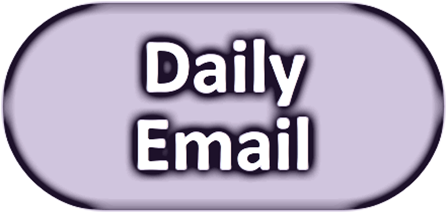Elul Unbound: Week 1
Day One (Sunday, August 12): Mini-Podcast #1
Today, and each Sunday for the next month, we kick off our weekly Elul theme with a mini-podcast. Click the play button below to hear this week's!
Wake-Up Call:
Stay tuned for our upcoming, outside-the-box wake-up calls! Beginning tomorrow we’ll be shaking it up, thinking beyond the Shofar, to awaken you in creative new ways.
Day Two (Monday, August 13): Poem #1 - "Coming Up on September"
Each Monday of Elul, we are releasing a poem related to our weekly theme. This week, the poem we have chosen is "Coming Up on September," by Marge Piercy.
Coming Up On September
By Marge Piercy
White butterflies, with single
black finger paint eyes on their wings
dart and settle, eddy and mate
over the green tangle of vines
in Labor Day morning steam.
The year grinds into ripeness and rot,
grapes darkening, pears yellowing,
the first Virginia creeper twining crimson,
the grasses, dry straw to burn.
The New Year rises, beckoning
across the umbrellas on the sand.
I begin to reconsider my life.
What is the yield of my impatience?
What is the fruit of my resolve?
I turn from frantic white dance
over the jungle of productivity
and slowly a niggun** slides,
cold water down my throat.
I rest on a leaf spotted red.
Now is the time to let the mind
search backwards like the raven
loosed to see what can feed us.
Now, the time to cast the mind forward
to chart an aerial map of the months.
The New Year is a great door
that stands across the evening
and Yom Kippur is the second door.
Between them are song and silence,
stone and clay pot to be filled from within myself.
I will find there both ripeness and rot,
what I have done and undone,
what I must let go with the waning days
and what I must take in.
With the last tomatoes, we harvest the fruit of our lives.
**A niggun is a melody that can act like a prayer or meditation. Most niggunim (plural of the word niggun) are wordless, but some have words. Click here to listen to a Niggun that Wendie wrote, and identified as a perfect fit for this second day of Elul.
Questions for Reflection:
1) What word or phrase jumps out at you in this poem? Why do you think that it does?
2) What is the "yield of your impatience?" What is the "fruit of your resolve?" What is your "ripeness and your rot" from this past year? What are the "fruits of your life" from this past year?
Wake-Up Call:
Each day of Elul Unbound includes a wake-up call, to remind us that part of this final month of the year is becoming awake to what is coming in the new year. For day two's wake-up call, press the play button on the video to the right.
Day Three (Tuesday, August 14th): EL-O-L #1
Each Tuesday of this month, we are sending out a little dose of Elul humor, through a joke that connects with our weekly Elul Unbound theme. Read on for this week's joke!
Levi goes over to his friend Shimon's house and they shmooze for hours. Levi says, "It is getting very late. It must be way past midnight. What time is it?" Shimon replies with a shrug, "Sorry, I don't have a clock."
Levi: "You don't have a clock?"
Shimon: "Why should I? I have a shofar."
Levi: "A shofar? How can you tell time with a shofar?"
Shimon: "Just watch," says Shimon as he sticks his head out the window and blows a piercing long blast with his shofar.
All of a sudden, windows in the street start opening and lots of people yell, "Are you crazy blowing a shofar at this time? It's TWO O’CLOCK IN THE MORNING!"
"See," says Shimon. "The shofar tells me what time it is."
Wake-Up Call:
Each day of Elul Unbound includes a wake-up call, to remind us that part of this final month of the year is becoming awake to what is coming in the new year. For the day three wake-up call, press the play button on the video below.
Day Four (Wednesday, August 15th): "Taking the Elul Plunge"
Each Wednesday of Elul, we are encouraging folks to take in a reading on the weekly theme we have chosen for Elul Unbound. This week, the reading comes from Irwin Keller, and is entitled "Taking the Elul Plunge." It was originally delivered orally to Congregation Ner Shalom, his community in Sonoma County, California, on the final day before the month of Elul began in 2016. It can be found his blog, IrwinKeller.com.
So I want us to notice where we are today. Not in space but in time. This is the last day of the month of Av. When the sun goes down tonight it will be Elul, the last month of 5776. Elul is our month of preparation for the High Holy Days. Observant Jews will recite prayers for forgiveness; Sephardic communities might blow shofar every night. At the least, it is customary to use the month for teshuvah, for cleaning up our messes, accounting for our actions, setting our intentions. So that when we hit Rosh Hashanah, we are completing this soul work, not beginning it. I know we often don't use Elul this way. We typically hit Rosh Hashanah cold. And then we scurry for the Ten Days of Repentance to make some change. And some of us scurry all the way till the end of Yom Kippur, right up until the closing of the gates.
But imagine arriving at Rosh Hashanah warmed up. Immersed. Tenderized.
Last year at our Selichot service that ushers in the Holy Days, I talked about Elul being considered a mikveh in time. A great pool of mayim chayim, of living waters, into which we can, for a short time, dissolve.
How many of you have ever been to a mikveh? It is true that the way we've designed mikvaotin this day and age does not always provide the most appealing experience, especially for what is supposed to be a spiritual experience. They are often cramped, awkward, clinical – like a hospital tub in a gym locker room.
But if you've ever taken a ritual dunk outside, at a hot spring or a natural poolor river, it is hard to ever conceive of doing a mikveh indoors again. Because taking a mikveh in the natural world gives you that moment of being part of something greater – you are first a fish in the water, and then you are the water.
Even if we're just out swimming, we know that lakes and oceans and rivers, feel different. We emerge different: renewed, reconstituted. As if we were freeze-dried before and hadn't even noticed it. And all we needed to do was add water and stir. We feel this instinctively in mayim chayim, living waters, while we rarely feel it in the shower or a pool or a jacuzzi-sized urban mikveh.
The month of Elul and the Ten Days of Awe that follow it – that is, from tonight through Yom Kippur – are a mikveh in time, 40 days that feel a lot more like a deep, cool pond than a tepid hot tub. These 40 days give us a good leisurely chance to soak and swim and emerge resaturated; tender and pruny.
Talmud tells us that a mikveh, in order to be kosher, must contain at least 960 lugin of water. We no longer know how much this unit is. But for the mikveh in time, forty days of 24 hours = 960. This is just the right volume of time for us to immerse in.
So here we are, with just this day between us and Elul. We are on a springboard, waiting to dive in. Are we ready?
Well – I don't know how one becomes ready to dive. Diving is a mystery. I wasn't able to watch much of the Olympics this summer, but I did manage to catch one high diving event. High diving is one of my favorite summer Olympic sports. Yes, in part because the divers are kinda hot. (Including the women.) But also because it amazes me. How, in the 10 meters between the diving platform and the surface of the water, someone can do 14 flips and 2 somersaults and a twist or whatever and enter the water vertically and almost silently, is beyond my understanding. We are not dolphins. There is nothing natural about this sport. And yet the divers make it look graceful and effortless.
I am also drawn to this sport because it terrifies me. I'm really quite acrophobic, which is less a fear of heights than a fear of the edge. Whenever I stand on a precipice, or near one, or see a loved one walk close to one, I freeze. My muscles tense into immobility. There are times I feel like I want to fall just to break the terrible tension. But somehow these Olympic divers walk up to the edge again and again and they jump.
No matter how easy it looks, you know how they have practiced, the hours and days and years that it has taken them to learn how to leap. And the practice of learning to leap is a discipline. Because unlike in gymnastics, where your coach gives you a correction and you hop right back onto the pummel horse, after every dive, you have to take the correction and then run up three or four flights of stairs in order to try it again. There is no instant redo. You hear the suggestion, picture it, embody it, all while your body is busy climbing stairs.
Up and down. Up and down. Like in a Looney Tunes cartoon. Like in "High Diving Hare", where Yosemite Sam famously tries to force Bugs Bunny to jump off a very, very high jumping board into a bucket of water. Over and over Bugs tricks him so that he plunges instead. And this happens over and over, until the cartoon just zeroes in on the ladder. Up climbs wet Yosemite Sam. with an ascending bassline. Down he plummets. Up he climbs. Down he plummets.
Thankfully, Jews do not typically dive into a mikveh. The indoor ones are too shallow and confined. And natural bodies of water are usually approached by Jews in the old-fashioned way. You go in up to your ankles, and you shpritz. Then up to your knees, and you shpritz. Then the midriff. The shoulders. And after a very, very long time, the head.
That's how we usually enter the month of Elul and our teshuvah too – the work involved in getting to the new year, to the new beginning. We do it little by little. Sometimes we just stand up to our ankles for the whole month and then on Rosh Hashanah up to our knees, and finally, God willing, drop in on Yom Kippur.
But this year I want to jump. I want to brave the high platform and dive into the mikveh of Elul. This has been a terrible year in so many ways. The presidential race alone makes me want to take a bath. The violence in the world makes me want to immerse in tears. So many members of this community have sick or hurt this year, I want to find healing waters. I've been walking around under a cloud, and I just want it to rain already or for it to be gone.
So 40 days of mikveh. How can they help? After all, it's not real water! It's virtual, imaginal. And wait, even if it were real water, how would that help?
But the chance to dissolve should not be discarded lightly. Because this exercise, even in an imaginal realm, or especially in an imaginal realm, can ready us for what comes next.
The early Chasidic rebbe, the Magid of Mezritch, taught about dissolving. He noted that the word in Hebrew for "I" – ani, spelled alef-nun-yod – is an anagram of the word Ayin, spelled alef-yod-nun, a Kabbalistic image of God that means, literally, "nothing". This is God the infinite, God before Creation, God when there was just God, before there was an illusion of not-God. Ayin is the infinite stream that runs underneath all of what we might call reality.
The Magid instructed that our Ani, our ego, contains all of our investments, attachments, judgments, fears. If we want to be transformed, we must turn our Ani into Ayin. We must let our egos dissolve into the great Nothingness. It is only by passing through Nothingness that we reemerge, transformed, transfigured, aware again that we are not separate from God. We are emptied out, waiting to fill with God's light.
The mikveh of time can do this for us. We can immerse and dissolve. Our ego goes away, our Ani permutes into Ayin. We can feel the deep, cool relief of Nothingness. And then we emerge from the mikveh at the end of Yom Kippur, wet, pruny, full of light, transformed and ready to share that light with the world around us.
Elul starts tonight. And I confess I am scared of the edge. I am scared of this high platform. I am frightened to lose my self and all my investments, my judgments, my hurts that are dear to me. I am scared of the fall and of the cold water.
But this year I will not wade into the mikveh up to my ankles. I will climb the ladder. I will walk up to the edge of the platform and in one continuous motion I will dive. I might do it gracefully like an Olympian, with a somersault and a twist. I might plummet like Yosemite Sam into a bucket. I might bellyflop or breach the water feet first. But this year I will dive into the mikveh of Elul and under the water be reunited with the Nothing that all of this Something comes from.
Question for Reflection:
How can you create a mikveh in time for yourself this Elul? What is something you can commit to, in order to create some space - even for a very short time - as a respite from the fullness of everyday life?
Wake-Up Call:
Each day of Elul Unbound includes a wake-up call, to remind us that part of this final month of the year is becoming awake to what is coming in the new year. For day four's wake-up call, press the play button on the video to the right.
Day Five (Thursday, August 16th): Video - How Reflection Supports Personal Growth
On Thursdays, during the month of Elul, we are sending out videos that dovetail with the week's Elul Unbound theme. Today's video is called "How Reflection Supports Personal Growth."
Questions for Reflection
1) Reflect on the past year. What went better than you expected? What didn’t go as well as you planned?
2) Name one habit or belief that you would like to change in the coming year. What do you need to do differently, in order for that change to happen?
Wake-Up Call:
Each day of Elul Unbound includes a wake-up call, to remind us that part of this final month of the year is becoming awake to what is coming in the new year. For day five's wake-up call, press the play button on the video below.
Day Six (Friday, August 17th): Zoom Gathering #1
In a Judaism Unbound first, we are creating opportunities for you to connect, face-to-face, with other listeners! Each Friday of Elul, there will be a 60-minute Zoom gathering, to check in about how your Elul is going, and share thoughts on the weekly theme of Elul Unbound. Join this week's gathering via video chat by heading to zoom.us/j/7739879807 at 11:00 AM Eastern/8:00 AM Pacific on Friday, August 17th (you can also click the image on the left). You can join via phone by dialing 1-669-900-6833 and typing the room ID number, which is 7739879807, followed by the # sign.
Wake-Up Call:
Each day of Elul Unbound includes a wake-up call, to remind us that part of this final month of the year is becoming awake to what is coming in the new year. For day six's wake-up call, just press the play-button below!
Day 7 (Saturday, August 18th): Wildcard #1 - Elul Playlist
Shabbat Shalom! On Saturdays during Elul, we are mixing it up a bit. While each other day of the week will stay within one category (videos, poetry, etc), Saturdays will be "wildcard" days, so you won't know what to expect.
For the first wildcard of Elul, we are sharing this playlist with you, created by Wendie Lash, our collaborator for Elul Unbound. Click the play button below, and you'll be treated to five songs related to themes of the month.
Wake-Up Call:
Each day of Elul Unbound includes a wake-up call, to remind us that part of this final month of the year is becoming awake to what is coming in the new year. For day seven's wake-up call, just press the play-button below!




















